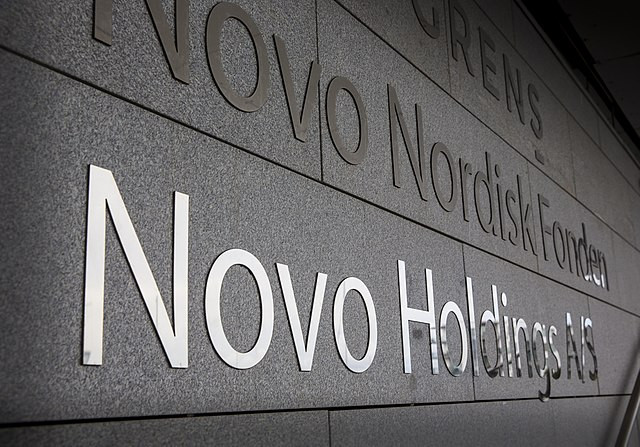Shares of Novo Nordisk plunged by as much as 24% on Friday, marking a significant setback for the Danish pharmaceutical giant after its late-stage trial results for the experimental weight-loss drug CagriSema fell short of expectations. By mid-afternoon in London, the stock had pared losses but was still down over 20%. Meanwhile, shares of rival Eli Lilly rose nearly 6% in U.S. pre-market trading, benefiting from Novo's stumble.
The trial revealed that CagriSema, a combination of semaglutide-the active ingredient in the blockbuster drug Wegovy-and the amylin analog cagrilintide, resulted in a 22.7% weight loss for participants. This figure fell short of the 25% weight reduction Novo Nordisk had forecasted. Despite the outcome, Novo Nordisk maintains that CagriSema remains promising. "We are encouraged by the weight loss profile of CagriSema demonstrating superiority over both semaglutide and cagrilintide in monotherapy," Martin Holst Lange, Novo's executive vice president for development, said in a press release.
The trial, known as REDEFINE 1, involved approximately 3,400 participants over a 68-week period. The study included individuals with obesity or who were overweight with one or more comorbidities. The protocol allowed participants to adjust their dosage throughout the trial, but only 57% reached the highest dosage level by the end. Analysts believe this may have contributed to the shortfall in weight loss outcomes.
The setback comes at a time when the obesity drug market is becoming increasingly competitive. Novo's key rival, Eli Lilly, recently announced superior results from its experimental drug Zepbound, which achieved an average weight loss of 20.2% over 72 weeks, outperforming Wegovy's 13.7% during the same period. Analysts noted that Zepbound's data highlighted the challenges Novo faces in maintaining its leadership in this lucrative sector.
Despite the disappointment, Novo plans to continue developing CagriSema. The company is preparing to submit the drug for regulatory approval by the end of 2025 and is awaiting results from a second trial, REDEFINE 2, which focuses on adults with type 2 diabetes who are obese or overweight. Those findings are expected in early 2025.
Market analysts were split on the implications of Friday's news. Sydbank pharma equity analyst Soren Lontoft said that while the results were below the expectations of those focusing solely on total weight reduction, the data could appeal to a more segmented market. "If you think the obesity market will be defined by a portfolio of medications addressing different needs, you shouldn't be downbeat about these data," Lontoft told CNBC.
J.P. Morgan analysts echoed this sentiment, stating in a note that the trial results, while disappointing, still validate the potential of amylin analog treatments. "Though the headline weight loss for CagriSema combo was below expectations, we believe the amylin mono headline data shows efficacy in line with expectations and good tolerability," they wrote. They added that the findings support the development of similar drugs by other competitors, including Zealand Pharma, whose CEO has called their amylin-based treatment a "crown jewel."
The trial's outcome has intensified the rivalry between Novo and Lilly, as both companies race to dominate the burgeoning market for obesity treatments. Analysts estimate that the market could be worth over $50 billion annually by 2030. Novo's setback, combined with Zepbound's strong performance, underscores the high stakes and fierce competition shaping the industry's future.
Novo's stock, which has declined over 26% in the past six months, faces mounting pressure as investors reassess the company's ability to stay ahead in this critical market. For now, Novo remains optimistic about its pipeline and the role CagriSema could play in expanding its portfolio of weight-loss treatments. "With the insights obtained from the REDEFINE 1 trial, we plan to further explore the additional weight loss potential of CagriSema," Lange stated.




